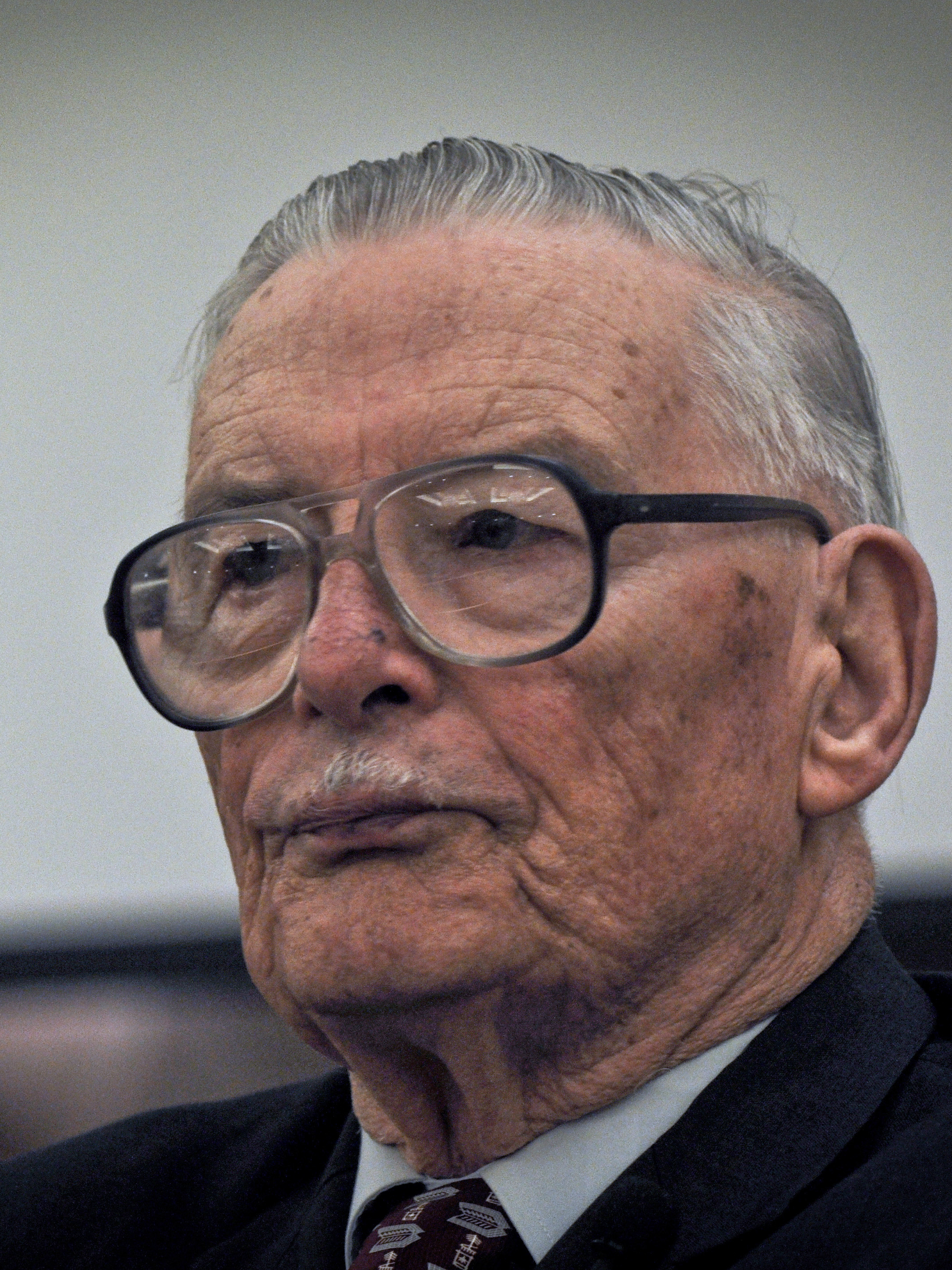|
Institutionalist Political Economy
Institutionalist political economy, also known as institutional political economy or IPE, refers to a body of political economy, thought to stem from the works of institutionalists such as Thorstein Veblen, John Commons, Wesley Mitchell and John Dewey. It emphasizes the impact of historical and socio-political factors on the evolution of economic practices, often opposing more Rational choice theory, rational approaches. In the political sense, this implies the influences actors like the state have on socio-economic practices and the shaping of institutions via political decision-making. Relevant variables for the study of political institutions include the structures that indicate voting rules, the political system, preferences and ideological leanings of leaders. Overview The institutionalist political economics perspective builds upon core theories from institutional economics and further apply them to the field of contemporary political economy. Wesley Mitchell originally diffe ... [...More Info...] [...Related Items...] OR: [Wikipedia] [Google] [Baidu] |
Political Economy
Political economy is the study of how Macroeconomics, economic systems (e.g. Marketplace, markets and Economy, national economies) and Politics, political systems (e.g. law, Institution, institutions, government) are linked. Widely studied phenomena within the discipline are systems such as Market economy, labour markets and Financial market, financial markets, as well as phenomena such as Economic growth, growth, Distribution of wealth, distribution, Economic inequality, inequality, and International trade, trade, and how these are shaped by institutions, laws, and government policy. Originating in the 16th century, it is the precursor to the modern discipline of economics. Political economy in its modern form is considered an interdisciplinary field, drawing on theory from both political science and Neoclassical economics, modern economics. Political economy originated within 16th century western Ethics, moral philosophy, with theoretical works exploring the administration ... [...More Info...] [...Related Items...] OR: [Wikipedia] [Google] [Baidu] |
Institutions
Institutions are humanly devised structures of rules and norms that shape and constrain individual behavior. All definitions of institutions generally entail that there is a level of persistence and continuity. Laws, rules, social conventions and norms are all examples of institutions. Institutions vary in their level of formality and informality. Institutions are a principal object of study in social sciences such as political science, anthropology, economics, and sociology (the latter described by Émile Durkheim as the "science of institutions, their genesis and their functioning"). Primary or meta-institutions are institutions such as the family or money that are broad enough to encompass sets of related institutions. Institutions are also a central concern for law, the formal mechanism for political rule-making and enforcement. Historians study and document the founding, growth, decay and development of institutions as part of political, economic and cultural history. Def ... [...More Info...] [...Related Items...] OR: [Wikipedia] [Google] [Baidu] |
Political Economy
Political economy is the study of how Macroeconomics, economic systems (e.g. Marketplace, markets and Economy, national economies) and Politics, political systems (e.g. law, Institution, institutions, government) are linked. Widely studied phenomena within the discipline are systems such as Market economy, labour markets and Financial market, financial markets, as well as phenomena such as Economic growth, growth, Distribution of wealth, distribution, Economic inequality, inequality, and International trade, trade, and how these are shaped by institutions, laws, and government policy. Originating in the 16th century, it is the precursor to the modern discipline of economics. Political economy in its modern form is considered an interdisciplinary field, drawing on theory from both political science and Neoclassical economics, modern economics. Political economy originated within 16th century western Ethics, moral philosophy, with theoretical works exploring the administration ... [...More Info...] [...Related Items...] OR: [Wikipedia] [Google] [Baidu] |
Institutional Economics
Institutional economics focuses on understanding the role of the Sociocultural evolution, evolutionary process and the role of institutions in shaping Economy, economic Human behavior, behavior. Its original focus lay in Thorstein Veblen's instinct-oriented dichotomy between technology on the one side and the "ceremonial" sphere of society on the other. Its name and core elements trace back to a 1919 ''American Economic Review'' article by Walton H. Hamilton. Institutional economics emphasizes a broader study of institutions and views markets as a result of the complex interaction of these various institutions (e.g. individuals, firms, states, social norms). The earlier tradition continues today as a leading Heterodox economics, heterodox approach to economics.Warren J. Samuels ([1987] 2008). "institutional economics," ''The New Palgrave: A Dictionary of Economics''Abstract. "Traditional" institutionalism rejects the ''reduction'' of institutions to simply tastes, technology, and ... [...More Info...] [...Related Items...] OR: [Wikipedia] [Google] [Baidu] |
Constitutional Economics
Constitutional economics is a research program in economics and constitutionalism that has been described as explaining the choice "of alternative sets of legal-institutional-constitutional rules that constrain the choices and activities of economic and political agents". This extends beyond the definition of "the economic analysis of constitutional law" and is distinct from explaining the choices of economic and political agents within those rules, a subject of orthodox economics. Instead, constitutional economics takes into account the impacts of political economic decisions as opposed to limiting its analysis to economic relationships as functions of the dynamics of distribution of marketable goods and services. Constitutional economics was pioneered by the work of James M. Buchanan. He argued that "The political economist who seeks to offer normative advice, must, of necessity, concentrate on the process or structure within which political decisions are observed to be made. Exis ... [...More Info...] [...Related Items...] OR: [Wikipedia] [Google] [Baidu] |
East Asian Tigers
The Four Asian Tigers (also known as the Four Asian Dragons or Four Little Dragons in Chinese and Korean) are the developed East Asian economies of Hong Kong, Singapore, South Korea, and Taiwan. Between the early 1960s and 1990s, they underwent rapid industrialization and maintained exceptionally high growth rates of more than 7 percent a year. By the early 21st century, these economies had developed into high-income economies, specializing in areas of competitive advantage. Hong Kong and Singapore have become leading international financial centres, whereas South Korea and Taiwan are leaders in manufacturing electronic components and devices. Large institutions have pushed to have them serve as role models for many developing countries, especially the Tiger Cub Economies of southeast Asia. In 1993, a World Bank report ''The East Asian Miracle'' credited neoliberal policies with the economic boom, including the maintenance of export-oriented policies, low taxes and minimal wel ... [...More Info...] [...Related Items...] OR: [Wikipedia] [Google] [Baidu] |
Pragmatism
Pragmatism is a philosophical tradition that considers words and thought as tools and instruments for prediction, problem solving, and action, and rejects the idea that the function of thought is to describe, represent, or mirror reality. Pragmatists contend that most philosophical topics—such as the nature of knowledge, language, concepts, meaning, belief, and science—are all best viewed in terms of their practical uses and successes. Pragmatism began in the United States in the 1870s. Its origins are often attributed to the philosophers Charles Sanders Peirce, William James, and John Dewey. In 1878, Peirce described it in his pragmatic maxim: "Consider the practical effects of the objects of your conception. Then, your conception of those effects is the whole of your conception of the object."Peirce, C.S. (1878), " How to Make Our Ideas Clear", ''Popular Science Monthly'', v. 12, 286–302. Reprinted often, including ''Collected Papers'' v. 5, paragraphs 388–410 an ... [...More Info...] [...Related Items...] OR: [Wikipedia] [Google] [Baidu] |
New Institutional Economics
New Institutional Economics (NIE) is an economic perspective that attempts to extend economics by focusing on the institutions (that is to say the sociology, social and legal Norm (sociology), norms and rules) that underlie economic activity and with analysis beyond earlier institutional economics and neoclassical economics. Unlike neoclassical economics, it also considers the role of culture and classical political economy in economic development. The NIE assume that individuals are rational and that they seek to maximize their preferences, but that they also have cognitive limitations, lack complete information and have difficulties monitoring and enforcing agreements. As a result, institutions form in large part as an effective way to deal with Transaction cost, transaction costs. NIE rejects that the state is a neutral actor (rather, it can hinder or facilitate effective institutions), that there are zero transaction costs, and that actors have fixed preferences. Overview It ... [...More Info...] [...Related Items...] OR: [Wikipedia] [Google] [Baidu] |
Neoclassical Economics
Neoclassical economics is an approach to economics in which the production, consumption and valuation (pricing) of goods and services are observed as driven by the supply and demand model. According to this line of thought, the value of a good or service is determined through a hypothetical maximization of utility by income-constrained individuals and of profits by firms facing production costs and employing available information and factors of production. This approach has often been justified by appealing to rational choice theory, a theory that has come under considerable question in recent years. Neoclassical economics historically dominated macroeconomics and, together with Keynesian economics, formed the neoclassical synthesis which dominated mainstream economics as "neo-Keynesian economics" from the 1950s to the 1970s.Clark, B. (1998). ''Principles of political economy: A comparative approach''. Westport, Connecticut: Praeger. Nadeau, R. L. (2003). ''The Wealth of Na ... [...More Info...] [...Related Items...] OR: [Wikipedia] [Google] [Baidu] |
Neoliberalism
Neoliberalism (also neo-liberalism) is a term used to signify the late 20th century political reappearance of 19th-century ideas associated with free-market capitalism after it fell into decline following the Second World War. A prominent factor in the rise of conservative and libertarian organizations, political parties, and think tanks, and predominantly advocated by them, it is generally associated with policies of economic liberalization, including privatization, deregulation, globalization, free trade, monetarism, austerity, and reductions in government spending in order to increase the role of the private sector in the economy and society. The defining features of neoliberalism in both thought and practice have been the subject of substantial scholarly debate. As an economic philosophy, neoliberalism emerged among European liberal scholars in the 1930s as they attempted to revive and renew central ideas from classical liberalism as they saw these ideas diminish ... [...More Info...] [...Related Items...] OR: [Wikipedia] [Google] [Baidu] |
Thorstein Veblen
Thorstein Bunde Veblen (July 30, 1857 – August 3, 1929) was a Norwegian-American economist and sociologist who, during his lifetime, emerged as a well-known critic of capitalism. In his best-known book, ''The Theory of the Leisure Class'' (1899), Veblen coined the concepts of ''conspicuous consumption'' and ''conspicuous leisure''. Historians of economics regard Veblen as the founding father of the institutional economics school. Contemporary economists still theorize Veblen's distinction between "institutions" and "technology", known as the Veblenian dichotomy. As a leading intellectual of the Progressive Era in the US, Veblen attacked production for profit. His emphasis on conspicuous consumption greatly influenced economists who engaged in non-Marxist critiques of fascism, capitalism, and of technological determinism. Biography Early life and family background Veblen was born on July 30, 1857, in Cato, Wisconsin, to Norwegian-American immigrant parents, Thomas V ... [...More Info...] [...Related Items...] OR: [Wikipedia] [Google] [Baidu] |
Capitalism
Capitalism is an economic system based on the private ownership of the means of production and their operation for Profit (economics), profit. Central characteristics of capitalism include capital accumulation, competitive markets, price system, private property, Property rights (economics), property rights recognition, voluntary exchange, and wage labor. In a market economy, decision-making and investments are determined by owners of wealth, property, or ability to maneuver capital or production ability in Capital market, capital and financial markets—whereas prices and the distribution of goods and services are mainly determined by competition in goods and services markets. Economists, historians, political economists and sociologists have adopted different perspectives in their analyses of capitalism and have recognized various forms of it in practice. These include ''Laissez-faire capitalism, laissez-faire'' or free-market capitalism, anarcho-capitalism, state capi ... [...More Info...] [...Related Items...] OR: [Wikipedia] [Google] [Baidu] |








